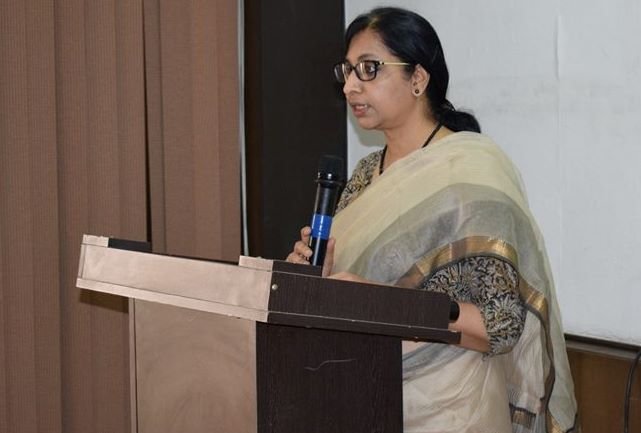The Digital Communications Commission (DCC), formerly known as Telecom Commission, has decided to take TRAI’s view on allocation of 10 MHz of the 700MHz spectrum band to Indian Railways.
 Telecom Secretary Aruna Sundararajan told reporters that the Department of Telecom will seek Indian telecom regulator’s views on allocating the 10MHz spectrum worth around Rs 65,000 crore to Indian Railways for an advanced signalling system.
Telecom Secretary Aruna Sundararajan told reporters that the Department of Telecom will seek Indian telecom regulator’s views on allocating the 10MHz spectrum worth around Rs 65,000 crore to Indian Railways for an advanced signalling system.
“Indian Railways has asked for 10 MHz of spectrum in the 700 MHz band for setting up public safety and security services. The Commission (DCC) has decided that the DoT should take the views of TRAI in the matter,” she said.
The 700 MHz band is considered as one of the best radio waves for long-distance mobile communication services. TRAI earlier recommended a base price of Rs 6,568 crore per megahertz in 700 MHz. Many operators did not bid for the expensive spectrum in the last spectrum auctions.
However, giving spectrum to the Railways for non-commercial use may also impact levies such as adjusted gross revenue, spectrum usage charges (SUC) and licence fee collected, as the band is earmarked for mobile services, Aruna Sundararajan said.
The DCC rejected a TRAI proposal to create data aggregators as it felt many operators are doing similar work and it has decided against creating a new category for data services under telecom licences.
India is consuming 8.3GB per person per month whereas China is using only 5GB per person per month. “So, there is no need for anybody to incentivise data usage in India. Neither do we need to encourage data usage nor need data intermediaries or a regulator,” Aruna Sundararajan said.
This means TRAI’s recommendation to offer free data of 100 MB in rural areas will not be approved by the DCC.
In another decision, the DCC included approving an audio-conferencing service under the ambit of the telecom licence.
Calls made from landline connections do not attract any interconnection usage charge, while it is charged for a mobile-to-mobile call made on different networks. State-owned operator BSNL provides such a service.
DCC approved reducing the entry fee on VSAT to Rs 15 lakh from Rs 30 lakh and waived the fee of Rs 16 lakh that organisations are required to pay for each VSAT hub thereafter. This would boost setting up of VSAT-based networks, Aruna Sundararajan said.





